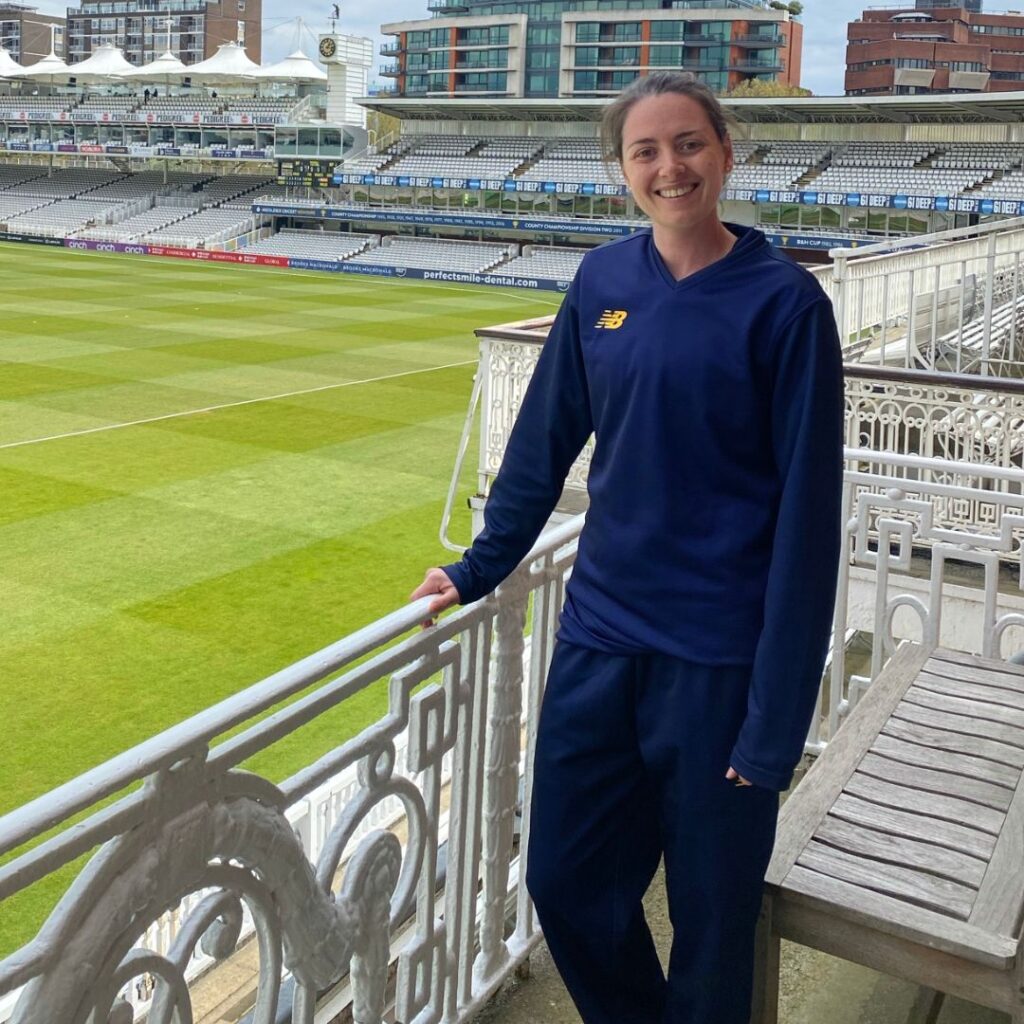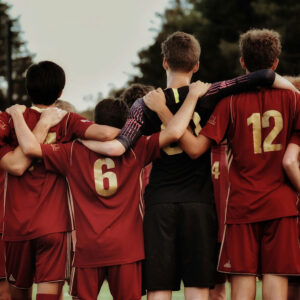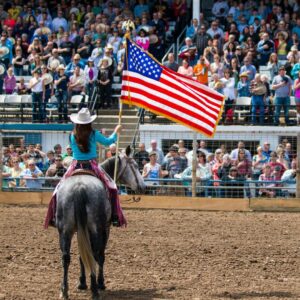Olivia Rae: From the pitch to the stands

Olivia Rae grew up in a sporting household, from watching Durham County Cricket Club in a tradition passed down the generations from her grandma, to avidly watching the Olympics – joyfully crying for athletes who won gold and feeling overwhelming pride when the national anthem was played.
As she tried lots of different sports, she found things came naturally. The individual nature of swimming provided a huge escapism and a purpose, and she also enjoyed tennis, football and cricket.
But it was the latter that provided her with much more than anything else: hope.
“I just fell into it by accident,” Olivia recalled. “My brother played cricket, and it wasn’t really meant for me to play as I didn’t know that girls could play cricket at the time in Durham.
“My brother was training while I was on the sidelines and I was chucking a ball up and catching it. The coach came over to me and asked if I wanted to get involved, which was huge because I was the only girl.
“There was no way that in my personality I was going to ask, ‘can I play?’ That’s not in my nature, being quite shy, but that moment was welcoming and accepting. The fact that I could play cricket even though I was a girl came from someone else, it didn’t come from me.
“It was such a public thing that it was accepted by everyone there, and I just cracked on and never looked back.”
Olivia doesn’t remember how she reacted in that moment – was she nervous, hesitant, or did she say yes straight away? But after that glimmer of hope, someone making her feel accepted as a female cricketer in a male-dominated environment, she found a new focus.
“I didn’t have a goal in mind other than just turning up and playing with the boys at my club. I was just seen as a cricketer and allowed to focus on cricket.
“I was invited to play with women at county level when I was 11, and even there we didn’t have access to a high-performance environment. Durham University was where I first experienced that; early morning starts, gym, running sessions, and routine.
“After university that all went away again and I couldn’t then visualise being a cricketer, and I went to Edinburgh to do a master’s degree with a focus on getting a job and building a career.
“While I was there, I was invited to Scotland training and I played for them for seven years, accumulating 67 caps, and it was just incredible how it happened without the infrastructure that we have today.”



Incredible, certainly, but it wasn’t without passion and perseverance. Comments from opposing boys’ teams and a lack of infrastructure in the women’s game turned out to be just one side of the story.
As Olivia learned much later, a low awareness of autism in sport gave her an uphill battle.
“At the very beginning of my relationship with cricket, I was able to just play – that’s the outcome that we want for everyone, to be able to focus on their game without social pressures. But I started to struggle in certain pathways, where people lacked understanding around how best to communicate with me.
“I do still feel anxiety, but if we can all come together and understand and learn, we can reduce the difficult and challenging experiences that neurodiverse athletes have and we can all just focus on the athlete.
“Athletes should feel supported and understood so that they can be themselves, feel accepted, and then perform – that is the end point that we all should strive for.”
This took time for Olivia to understand herself, having done a lot of reflection on her experiences in sport following her recent autism diagnosis.
Her learnings have permeated into her new role with Neurodiverse Sport, working alongside a team of people advocating for more neuroinclusion in sport.
She is exploring ways to show up in sport in a way that feels more comfortable and enjoyable. After falling out of love with going to football matches due to the boisterous behaviour of supporters around her, she rediscovered her passion by following Arsenal and England Ladies and putting her sensory needs first.
“I started following Arsenal after being inspired by some of their achievements despite injuries and adversities, and I’d drive to Meadow Park [where Arsenal used to play most of their games] with my mum, be able to get a parking space, and that was a great experience and wasn’t overwhelming.
“Now it’s different as they are selling out the Emirates and Meadow Park gets really busy, and that’s when I reached out to the disability liaison team as I didn’t want to miss out on watching sport due to things I struggle with.
“I can now sit in the disability access lounge, get there really early and have a hot chocolate, and whoever is supporting me helps me get to my seat.
“I also wear noise-cancelling headphones throughout the game. Even when I was enjoying sport, I didn’t realise how on edge I was, and I was often quite tired after watching sports events because I wasn’t necessarily comfortable.
“I’d like to explore sensory rooms and watch games from there, and I want people to know that there is help out there if you are struggling to enjoy sports events. It can be an experience that’s more enjoyable than overwhelming.
“I feel positive because there are things in place that make my experience of watching sport a lot more comfortable. I have this understanding now about myself and awareness of who I am so I can show up in that way.
“The support and confidence I’ve received from meeting people like me or organisations who advocate for people who are neurodiverse means I can more confidently go out in the world as someone who is autistic in sport.”
More than two decades on from that pivotal moment on the side of the cricket pitch, Olivia is experiencing a new kind of hope – one which positively impacts autistic people all over the world.


